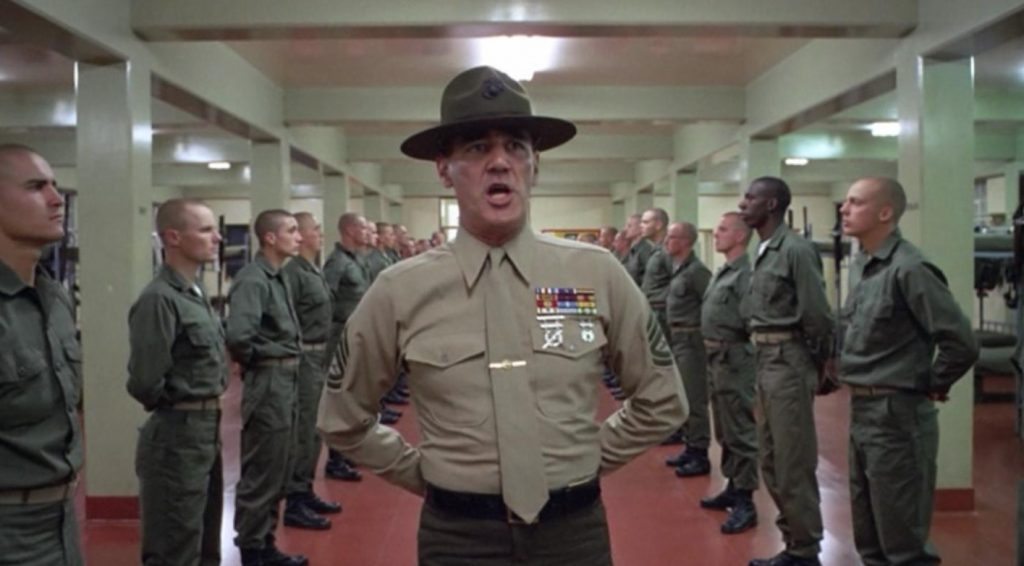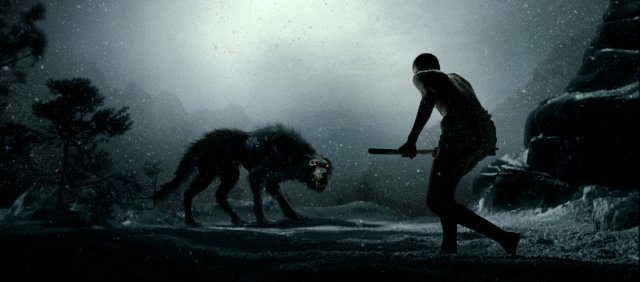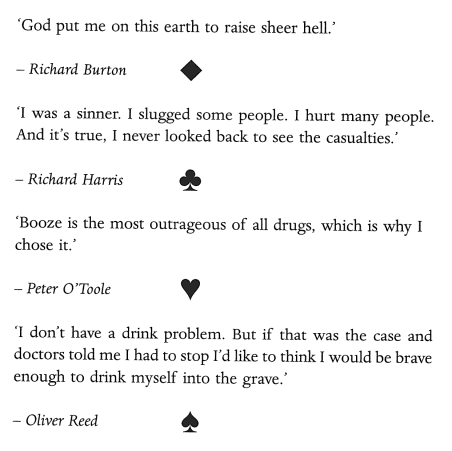Background
My father took me to many movies when I was growing up. Thankfully I was able to watch thought-provoking stuff when I was a child. Mostly westerns and war movies of which I thoroughly enjoyed discussing with my older brother. I still recall watching the actor Richard Harris star in the movie A Man Called Horse. It was 1971 and I was 4 years old.
The movie was based on the Dorothy Johnson novel called Indian Country and was set in the 1820’s America. In our tale Lord John Morgan, played by Harris, is captured by Mandan Indians while hunting. Morgan is given to the Chief’s mother and he is abused and mistreated. He is treated like a horse and in one memorable scene they mock him by mounting him as if he were an animal. Eventually Morgan falls for the Chief’s sister and in order to prove his worth to marry her he must undergo brutal rituals including a particular rite of passage called the Okipa Ceremony. Okipa (O-Kee-Pa) requires Morgan to be painfully suspended in the air from his chest with hooks. The movie ends with him joining the tribe, taking the name Horse and becoming chief. What a powerful rite of passage. I do not recall much of the movie but I will always remember the scene of Morgan’s ritual hanging.
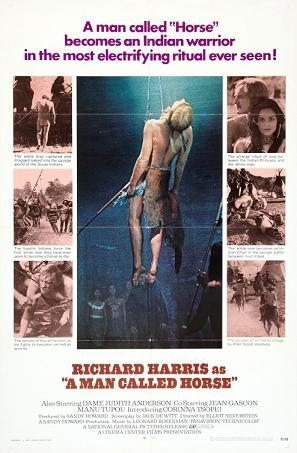
Their needs must be met with ritual guidance and initiation or they will find their own way into “manhood”.
The ethnographer, Arnold Van Gennep in his book “Rites of Passage” stated, “Rites of passage exist in order to consolidate social ties, establish roles, and give members of a group a sense of purpose and placement.”
David Cohen, in his book Circle of life: Rituals from the Family Album, described adolescence as “a rope bridge of knotted symbols and magic between childhood and maturity, strung across an abyss of danger.”
The Influence of Movies
Humans experience many transition points in their life but not all choose to mark or celebrate them whereas others do. Some transitional events, such as those which require inclusion into a tribe or distinct social group(s), are considered important rites of passage. Some young men believe that losing their virginity or purchasing their first car are ways of becoming a man and is an important rite of passage for them. Others believe those are shallow achievements and something more involved is required to initiate a boy into manhood. There are many rites of passage in the life of a man.
There are no shortages of rites of passage and coming of age movies whether it be in crude sex comedies or solemn dramas. These themes are covered so readily in movies such as Dead Poet’s Society, Dazed and Confused and Superbad.
Some movies are quite good and some, well, not so much. The Graduate, Stand by Me, and the Breakfast Club are superb films and strike a cord with many youth even though they are decades old. Their themes transcend generations and in each movie the youth works with or against a community in order to define himself. In doing this the youth crosses a threshold and takes his place with others who have done the same. Movies play a huge role in defining what are poor and valuable achievements to partake of in a youths’ life. Youth will have a much harder time navigating their way through cinema and its confusing themes of proper masculinity, brotherhood, death and societal responsibilities than adults will.
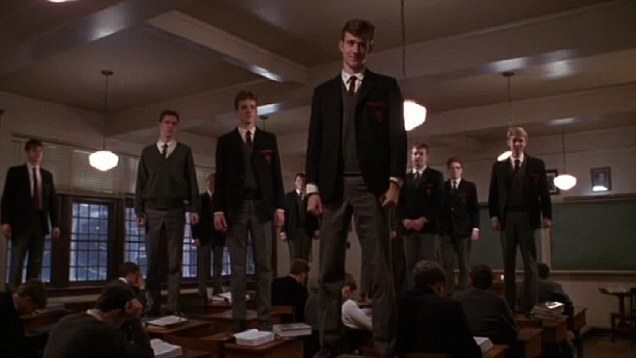
Important Themes
Virginity. Yes, another important topic to discuss. Losing one’s virginity is most present in young men’s minds and is something covered in many movies. This concept of manliness is made more profound if the youth is going off to war. These powerful themes are covered in movies such as Biloxi Blues with Matthew Broderick and in the 1971 American coming-of-age comedy-drama movie Summer of ’42, to name just two, where a young teen embarks on a venture to lose his virginity all while WW II takes place.
War. This is another very important topic that can weigh on the mind of a youth looking to find his place in the world. In the 1987 movie Empire of the Sun based on J. G. Ballard’s semi-autobiographical novel a young boy from a wealthy British family becomes a prisoner of war in a Japanese internment camp during WW II. He must learn to navigate through many perilous moments. He goes from wealth to poverty and must learn to handle stresses that many men cannot.
Brotherhood. The deep bonds of friendship and understanding that develops between young men are an important part of their life. Many movies such as Band of Brothers, or Saving Private Ryan give us the goods on what it means to be a part of a fraternity.
Death. Many young men have a great deal of naïveté and are not prepared for what they could experience in life. Innocent youth can marvel over the ‘neatness’ of weaponry but many are very unfamiliar with the tragedy of war. Watching Lone Survivor, or Black Hawk Down can hardly prepare them for what might come if they choose to serve in the military.
Young men want to be a part of something important and many struggle to find their place in the world; much of this is simply a part of growing pains however the lines on what it means to be a man are quite blurry today. Where should someone begin their quest to become a valuable contributor to society? Do you have young men and women in your household? Are you a military parent and have you initiated your child into some healthy, community building rites? Children need good role models to lead the way.
Groups such as the Children of the Earth foundation teach children how to track and be a part of nature. Tom Jones is an American naturalist, tracker, survivalist, and author. He was also the technical advisor on The Hunted, a major motion picture starring Tommy Lee Jones and Benecio Del Toro. Mr Jones notes:
Do the Anti-Heroes in Cinema Point the Way?
Super masculine men in cinema such as the characters portrayed by the actor John Wayne, in the movies Hondo, Rooster Cogburn, & Rio Bravo are very appealing to men and boys because they are virtuous and brave. The archetype of the gunfighter in particular was the alienated hero with an inability to hang up his gun. The Gunfighter’s focus was on the villain rather than the woman or boy that adored him. In the movies Shane, Rio Bravo, or the Man who Shot Liberty Valence the gunfighter is our idealized loner who saves the community but doesn’t integrate into our society.
Movie heroes like James Coburn, Burt Lancaster, Lee Marvin or Robert Mitchum broke women’s hearts all while being solitary fellows.
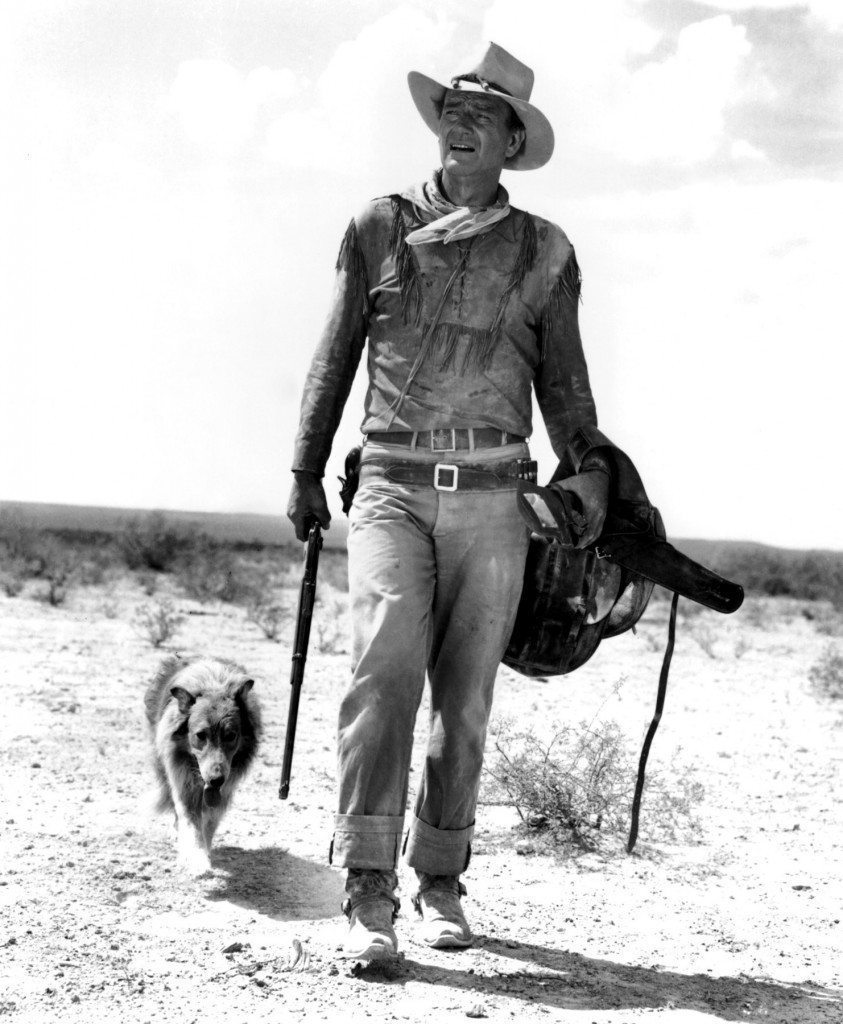
Alongside the cowboy came the drunken barstool bard. Peter O’Toole, Richard Burton, Oliver Reed and Richard Harris inspired many youth between their sips of beer and bar and pub shenanigans. Being a skirt-chasing, hell-raising drunk probably worked in some dysfunctional way for these wealthy, Hollywood leading-men but it’s also a good way to get hurt and a nice way to dishonor your marriage. If all youth aspired to become one of them then what kind of society would we have?
The gunfighter and the drunken He-man-poet in decades to come was eventually replaced by the metrosexual movie character. For a minute the retrosexual came into the fore with characters like Brad Pitt’s kinda manly character from Fight Club although calling him manly would be kind of a stretch in the eyes of many men. Were the manly men of old in cinema good role models? Some would say yes and others no. Antiheroes had many admirable qualities but they simply didn’t fit into society. But the He-men of yesterday were replaced with chinless wonders and hipsters in cinema and today it’s no wonder young men are so confused. The heroes on the big-screen, that influenced young men, were eventually replaced with simpering weenies.

Hollywood brought in Liam Neeson, the Rock and Jason Statham who seem to be pretty good role models and are never in the news for doing something foolish. Youth needs much more to get started in life on the right track than dreaming. For every single kid with a dream who gets on a Grey Hound bus bound for Hollywood stardom there will be thousands of others who simply don’t make it big. Heroes come and go in cinema and its based off what sells at the box office. They need rooting in something more substantial than Hollywood cinema.
If you’re in a leadership role and have never mentored young men then keep in mind that many young men look like adults but are still operating as teens. They are still trying to figure life out and a good mentor can help point the way. Trying to figure out how to be responsible, how to be a man in a world with changing definitions and concepts, and how to fit in a group is difficult for a youth on his own; whether you are a company commander or a team leader doesn’t matter. Youth needs good leaders to give them structure. Learning how to navigate through life should first start at home. Father and son hunting rituals are a good place to start. Father and daughter events can prepare a young lady for more challenging events in life such as being away at college while under the demands of her sorority or life in the military.
Sociology
Van Gennep used a metaphor for rites “as a kind of house divided into rooms and corridors.” A passage occurs when an individual leaves one group to enter another; in the metaphor, he changes rooms.
A ceremony may mark a rite of passage in a human life such as graduation, marriage, or retirement. There are many coming of age rites of passage such as Bar Mitzvah, the Débutante’s ball, First Haircut or Sweet Sixteen.
There are also some very dangerous rites of passage out there for boys. Remember that boys have a great need for rituals to mark their passage to manhood. They will invent their own if society does not provide it for them.
In Rio de Janeiro teenage daredevils called surfistas perform rail surfing. Teens duck electrical lines and metal beams while “surfing” atop moving trains. Some psychologists believe this is a virtual suicide gesture among kids whose lives are frozen in poverty. Remember that boys have a great need for rituals to mark their passage to manhood. They will invent their own if society does not provide it for them.
In van Gennep’s metaphor a person is still “in” the house but has moved to another room. Though rites of passage are diverse in cultures throughout the world they are still used as a means of separating people from groups which they once belonged to.
Three Phases
Three phases are identified by sociologists with the proper passing in a rite of passage: Separation, Liminality and Reintegration.
Separation: During this phase the initiate is separated from his former life. In a very structured rite of passage there is much prepping done until the time the initiate incorporates into a group. In the United States Marine Corps for example, a young man known as a recruit will enlist and begin to withdraw from his current social status. The loss of his hair at the barber-chair is a literal and symbolic cutting away from his former self. He will leave his old identity behind and acquire a new one.

Liminality (Transition): At Marine “boot camp” the recruit will experience a training program that is extremely challenging to him, both physically and mentally. The recruit will face tests necessary to prove he is worthy to be a Marine. All of the testing will culminate in a finishing event called the Crucible. This 54 –hour field event will test the recruit on the knowledge, skills and values he was taught throughout training. He is not yet part of the new group. With enough hard work and the proper knowledge imparted to him he will become a Marine. Once he passes this final test it symbolizes his transformation from recruit to Marine. No easy task.
Reintegration: The young man, now a Marine, will be re-introduced into society and he will be honored with his new status. He is recognized as a man and he will be able to participate in many of the events and ceremonies that his brothers partake of.
Now What?
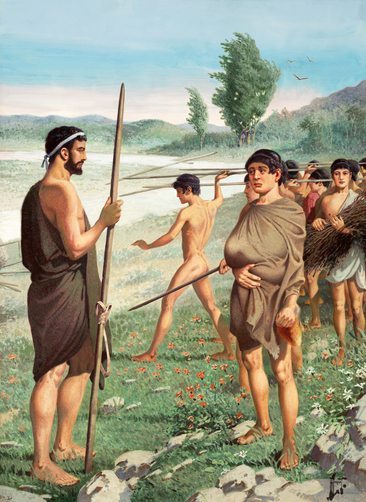
Old societies such as Sparta required its citizens to participate in warfare whether or not they liked it. Survival of the entire population hinged on the efforts put forth by every single man, woman, and child. Each boy from the age of seven until he 17 would attend warrior training known as kypteia.
From time to time magistrates sent young Spartan men into the countryside. Armed only with a knife the youth was tasked with killing as many Helots (the state-owned slave population) as possible. Thucydides, in his History of the Peloponnesian War stated that:
“the Helots who had been judged by the Spartans to be superior in bravery, set wreathes upon their heads in token of their emancipation, and visited the temples of the gods in procession, but in a little while afterwards all disappeared, more than two thousand of them, in such a way that no man was able to say, either then or afterwards, how they came to their deaths.”
If the youth returned after the killing ritual he would be considered a man, a warrior and part of the Spartan society.
We live in a day and age in America where rites of passage of this like this are no longer required at such a young age. However this doesn’t mean we should give up on putting our youth through rites of passage that are profoundly life-altering.
Our basic human nature yearns to be recognized and we have a desire to fit into society and its diverse social and religious strata. Today too many men stand for nothing and it is important for youth to learn to stand for something. They should stand for worthy things and seek out worthy challenges and rites that allow them to be part of a higher calling.
Our society today however is failing at preserving and maintaining some very important rites of passage.
Without direction most young people will create their own path. The military has always provided the place of belonging that youth needs. Youth without good role-models and a profound rite of passage may be lulled into the cheap substitute of street-gangs or dating conquests in order to believe those are manly things. Youth always needs ways to honor themselves and the society they belong to.
The proud few who end up going through law-enforcement academies, boot, flight or basic training just might learn some pretty important values such as : commitment, duty, self-respect, sacrifice, loyalty and personal courage. Certainly youth can learn to be productive citizens and important members of their nation and communities without enlisting in the service. The military is just one of many gateways to learn some important lessons.
Young men and men don’t need to endure the pain of the Sioux Okipa ritual. But they should be able to understand why it is important to have rituals like that in order to be a member of a group. It is a difficult world for youth to navigate alone. As good men we have a duty to guide them.
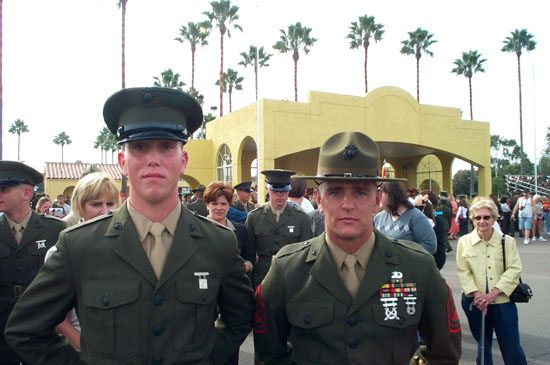
It’s up to every single one of us to create a healthy rite of passage in our homes for our sons and daughters to follow. If they are taught early on to honor themselves and others then we are maintaining and preserving some pretty important values for the next generation to follow. Teach the young how to value themselves and the society they belong to and they will go onto become good leaders.
We will cover more on these important concepts in our future articles.
MK
The Lonely American: Drifting Apart in the 21st Century By Jacqueline Olds, Richard S. Schwartz
http://www.amazon.com/The-Rites-Passage-Arnold-Gennep/dp/0226848493
